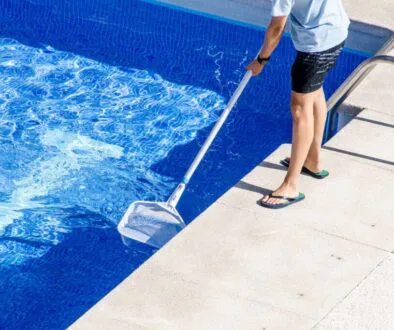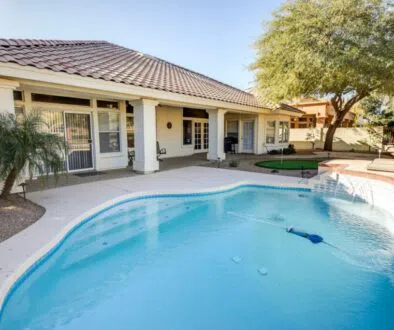Liquid Chlorine vs Tablets: Which Is Better For Your Pool?
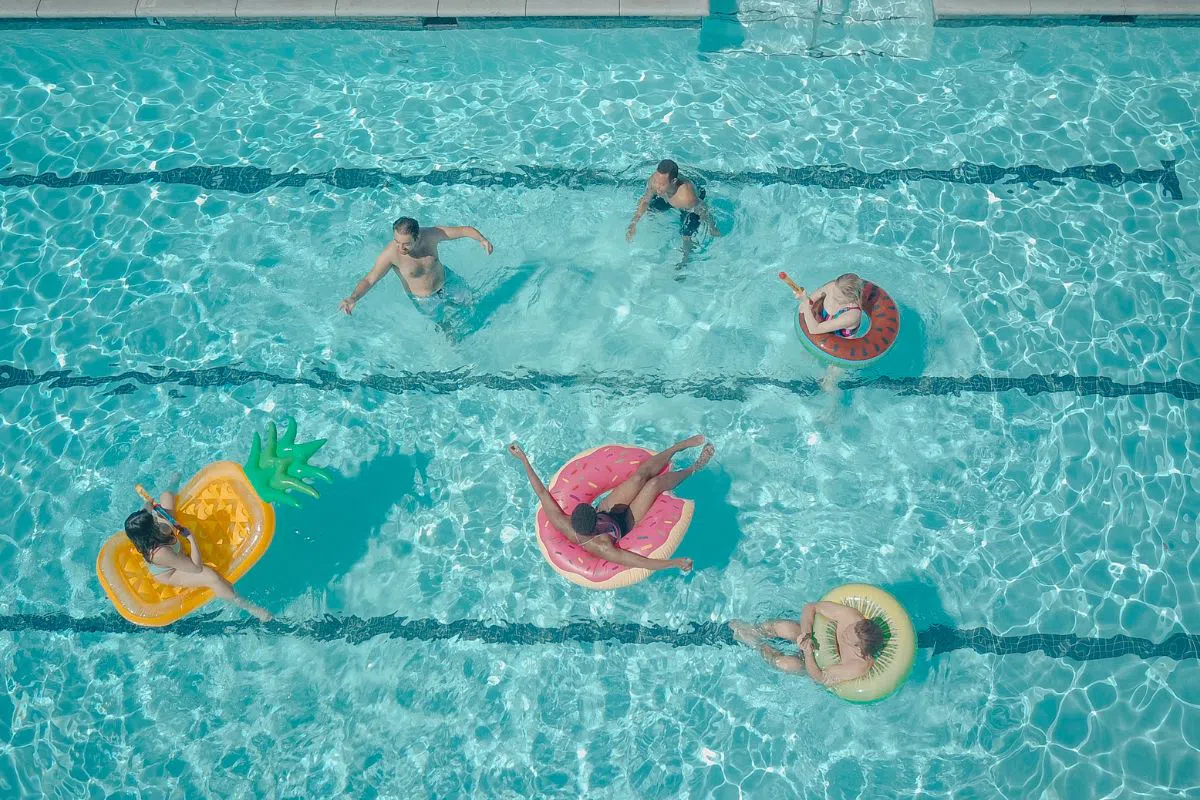
Published July 1, 2024
A swimming pool is a dream come true—until you face the challenge of maintaining it. Proper maintenance is essential to a clean and healthy pool, and chlorine is crucial. This powerful chemical keeps your water safe and clear by eliminating harmful pathogens. But it gets tricky: Should you choose liquid chlorine or chlorine tablets? The decision can make all the difference in your pool’s upkeep.
In this article, we’ll examine a comprehensive comparison of liquid chlorine vs tablets. You’ll gain valuable insights to make the right choice for your pool.
What Is Chlorine, And How Does It Work?
Chlorine is a highly effective pool sanitation chemical. It impairs the cell walls of bacteria and viruses, keeping the water clean and safe for swimmers. Chlorine’s sanitizing power comes from breaking down into various chemicals. These chemicals target microorganisms, ensuring your pool remains hostile to harmful agents.
However, chlorine’s effectiveness diminishes over time. Regular additions are necessary to maintain optimal levels. The distinctive smell of chlorine comes from chloramines. These compounds form when chlorine interacts with body oils, sweat, and cosmetics. This interaction reduces chlorine’s disinfection power, and a strong odor indicates that more sanitizer is needed.
Sunlight significantly affects chlorine’s effectiveness. UV rays can reduce chlorine levels by up to 90% within two hours. On hot days, chlorine dissipates from your pool more rapidly, but adding a stabilizer can protect it from UV degradation.
You can safely add chlorine to your pool in liquid or tablet form. Both are equally effective sanitizers, though they each have unique characteristics. Next, let’s compare the liquid chlorine vs chlorine tablets.
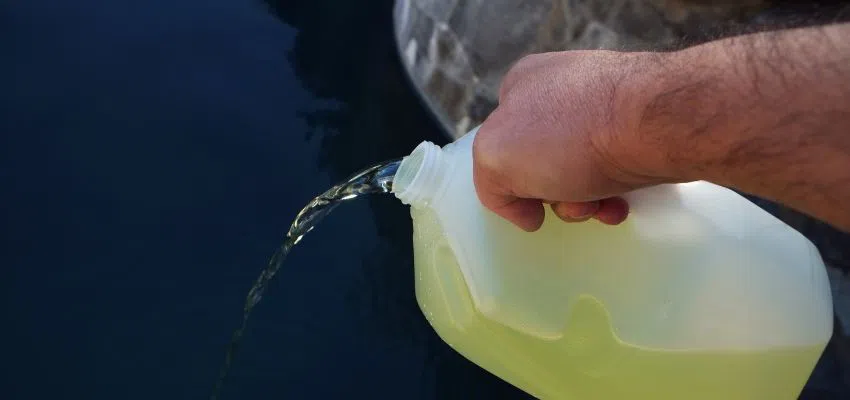
What Is Liquid Chlorine?
Liquid chlorine is a potent sanitizing agent for pools. It’s easy to add and rapidly dissolves, ensuring efficient water disinfecting. Known for its high pH level of around 13, it’s celebrated for its effectiveness in maintaining crystal clear and safe swimming conditions. Due to its strength, it’s crucial to handle liquid chlorine carefully. Adhere to all safety guidelines to avoid potential hazards.
Pros
- Highly effective. It quickly sanitizes pools, making it ideal for shock treatments that require a rapid response to contaminants.
- Large-scale application. Suitable for large pools. Easy to add large quantities. Efficient for commercial or public pool maintenance.
- Fast-acting. Immediately available chlorine starts to work as soon as it’s added to the water, providing quick results.
- Easy to apply. No dilution or pre-dissolving is needed. This simplifies the process and reduces preparation time.
- Lower purchase cost. It’s more affordable than other sanitizing options, providing cost savings for pool owners.
- Versatile use. It can be used as a routine sanitizer to maintain everyday cleanliness. It’s also effective as a shock treatment for sudden contamination issues.
Cons
- Chemical imbalance. Its high pH can disrupt pool chemistry, necessitating additional chemicals to balance the water.
- Unstabilized. Without stabilizers like cyanuric acid, it degrades quickly under sunlight. Additional products are needed to maintain its efficacy over time.
- Short shelf life. Loses potency over time, often within 4-6 weeks, leading to waste and potentially increased costs if not used promptly. Exposure to heat and light can speed up the degradation process.
- Lower available chlorine level. It contains 10-12% available chlorine. Larger quantities may be required to achieve the desired sanitizing effects.
- High pH. A pH level of 13 will raise the pool’s pH. This requires additional chemical adjustments to maintain balanced water chemistry.
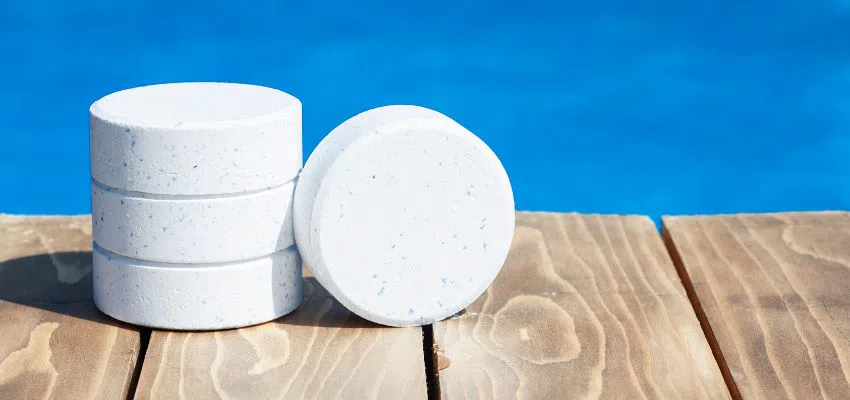
What Are Chlorine Tablets?
Chlorine tablets are often stabilized with cyanuric acid to prevent sunlight degradation. They offer a convenient, easy-to-handle solid form of chlorine. Available in various sizes, these tablets meet different needs. They dissolve slowly, ensuring a steady release of chlorine for consistent sanitation. Widely used in swimming pools and spas, they enhance efficiency. Chlorine tablets simplify pool maintenance, making it more effective and manageable.
Types
- Dichlor. This fast-dissolving chlorine compound, containing 60-65% chlorine, is ideal for quick chlorination. It’s stabilized with cyanuric acid, which helps protect the chlorine from degradation by sunlight.
- Calcium hypochlorite (Cal Hypo). With a chlorine content of 65%, this option is powerful and non-stabilized. It requires acid to balance pool chemistry. This prevents pH imbalances and ensures effective sanitation.
Pros
- Ease of use. The product features a simplified, mess-free application process, making it user-friendly for novices and experienced users.
- Long shelf life. In the chlorine tablets vs liquid comparison, tablets have a more stable formulation, resulting in a longer shelf life. This stability reduces purchase frequency, offering more convenience and cost savings.
- Stabilized. The formulation is stabilized, which minimizes the need for additional stabilizing agents. It provides an efficient solution with fewer additives.
- The highest available chlorine level is 90%. With the highest available chlorine level, it ensures adequate sanitation and disinfection.
- Easy storage, handling, and application. Designed for easy storage and handling. It simplifies the application process. Maintenance becomes less of a hassle.
- Controls algae and bacteria. It controls algae and bacteria effectively, maintaining a hygienic and healthy pool environment.
- Long shelf life. The product’s long shelf life ensures it remains effective for a long time. It provides reliable performance throughout its use.
Cons
- Accumulation of cyanuric acid. This product can lead to cyanuric acid (CYA) buildup over time. Excessive amounts may diminish the effectiveness of chlorine, requiring careful monitoring and management.
- Weekly shock treatments are recommended. Perform these treatments with unstabilized chlorine, which helps maintain optimal chlorine levels and effectiveness.
- Slow chlorine addition. The product adds chlorine to the water slowly. Users may need to monitor chlorine levels diligently to ensure consistent sanitation.
- Low pH level. With a low pH level of 2.8-3.0, the product can decrease the pool’s pH and total alkalinity levels. Regular testing and adjustment may be necessary to maintain the pool’s chemical balance.
Liquid Chlorine Vs Tablets: Which Is Better?
When comparing liquid chlorine to chlorine tablets, tablets are often the better choice for most pool owners. They’re more cost-effective, user-friendly, and efficient. Tablets provide a steady chlorine release, ensuring consistent sanitation without frequent adjustments.
They’re also easy to store and handle, reducing the risk of spills and mishandling. Typically available in pre-measured doses, they allow precise control over the chlorine added to the pool. This simplicity in maintenance leads to safer and more enjoyable swimming.
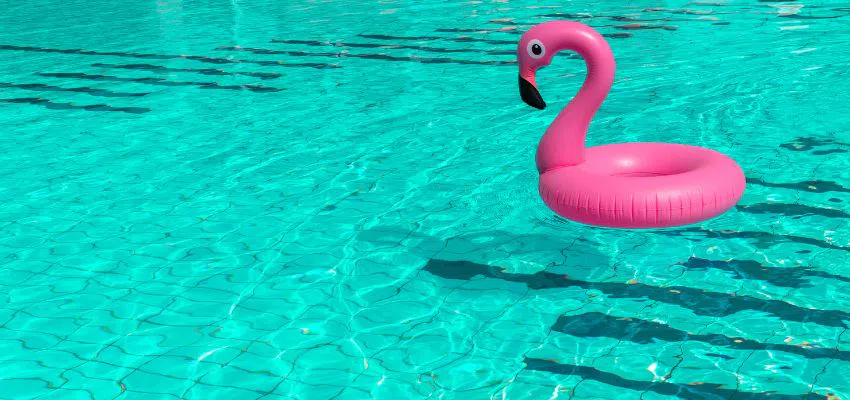
Making The Right Choice For Your Pool: Liquid Chlorine Vs Tablets
Choosing between liquid chlorine and tablets depends on your pool maintenance needs and preferences. Liquid chlorine is excellent for quick, large-scale sanitation. However, it requires careful handling and frequent application. Chlorine tablets offer a convenient, steady release of chlorine. They are easier to use and store. Tablets also require less frequent adjustments for pool balance. For most pool owners, chlorine tablets are more efficient, cost-effective, and manageable. Take the plunge with chlorine tablets for a cleaner, easier-to-maintain pool, and enjoy a sparkling swim all season long.
Hire Boca’s Favorite Pool Builders
Excel Pool and Patio Solutions is your trustworthy provider of pool services in Boca Raton. We are experts in pool and patio remodeling and can handle your resurfacing needs as well. Our technicians are vetted and trained for your guaranteed satisfaction. Get to know us by browsing our website or reaching out to us with any questions.
Contact our team today to request a free estimate for pool construction, maintenance, repairs and more.
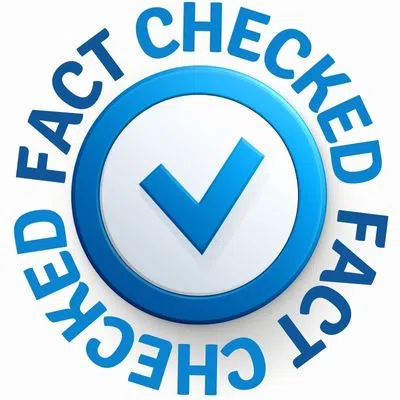
Fact Checked By Experts
This is original content and has been diligently fact checked by our internal team of experts. Discover more about the rigorous editorial standards we uphold for our website here.

About The Author
Hello! I am Corinne, a graduate of Riverside College. My career has evolved into focusing on writing, where I deliver high-quality and meticulously researched content. I have a proven track record of developing helpful articles that engage a wide variety of readers.

